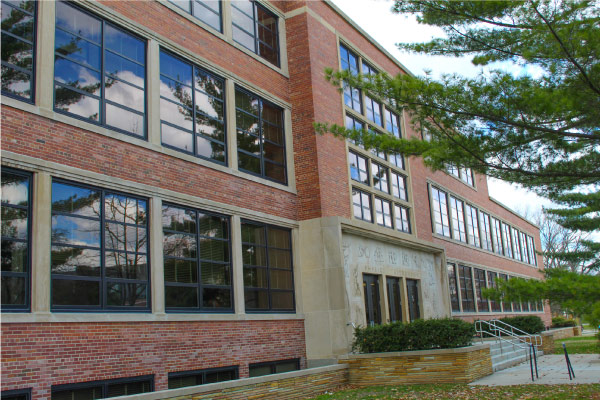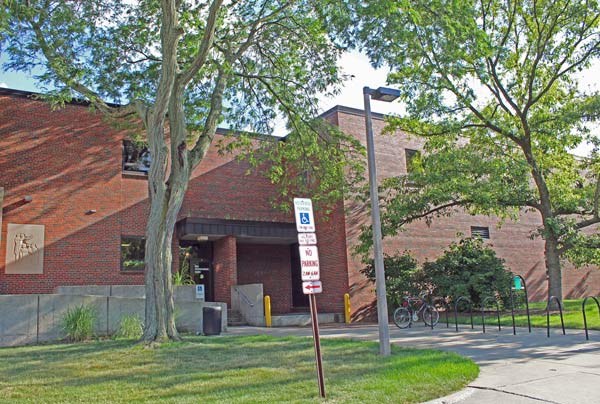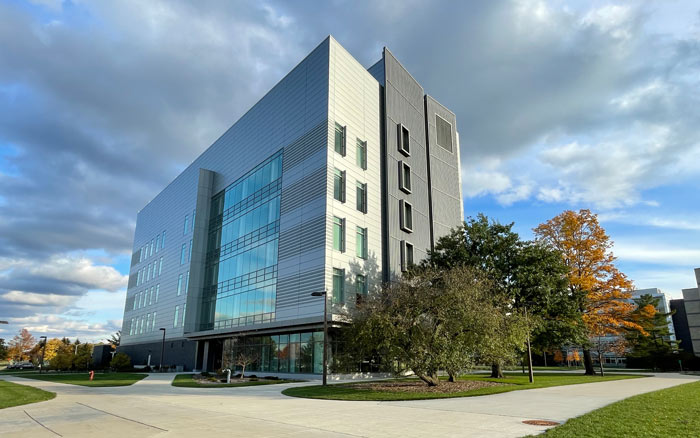Facilities & Resources
Research Facilities and Resources

Psychology Building
During the summer of 2004, the Psychology Department consolidated many of its facilities in the Psychology Building (formerly Physics/Astronomy). Many faculty and student offices as well as the department's administrative offices are in this building (316 Physics Rd.). Each faculty member has their own research laboratory housed in the Psychology Building. Laboratories are equipped with computers in testing rooms and sound-proof booths for collection of behavioral data. Several labs also have eye-tracking equipment.

Psychological Clinic
In 2004, the Psychological Clinic also moved from Olds Hall to the Psychology Building. The clinic is on the north side of the Psychology Building.The Psychological Clinic facilities include interviewing rooms, large and small playrooms equipped for audio and video recording, computer-based record keeping system, tape library and testing equipment, and a neuropsychological assessment laboratory. Portable equipment facilitates studies in school and other community settings.

Interdisciplinary Science and Technology Building
The Behavioral Neuroscience Laboratories (including computerized light microscopy systems, thermocyclers, spectrophotometers, gamma counter, radio immunoassays and access to electron- and confocal-microscopes for studies in neuroendocrinology, biological rhythms, and behavior) are located in the Interdisciplinary Science and Technology Building across campus (766 Service Rd.).
Additional Resources
-
Neuroimaging Facility
The Cognitive Imaging Research Center (CIRC) at MSU provides facility and support for conducting functional magnetic resonance imaging (fMRI) studies. The facility houses a 3T GE MR scanner equipped with a 8-channel head array coil, systems for delivery of visual and auditory stimulus, and MR-compatible button boxes for response collection.
-
Psycholinguistics and Visual Cognition Laboratory
Facilities in the Cognition & Cognitive Neuroscience Program are extensive. The Psycholinguistics and Visual Cognition Laboratory houses a variety of eye movement monitoring systems and a speech analysis laboratory. The Complex Cognition Laboratory is set up for studies of individual-differences in higher-level aspects of cognition, including reasoning, comprehension, and problem solving. The Skilled Performance Laboratory, which includes computer workstations, a golf putting green, and connections to campus neuroimaging facilities, enables cognitive and neural analyses of the processes of perception, attention, executive control, memory, and motor execution. The Developmental Cognitive Neuroscience Laboratory supports studies of attention, memory, visuo-spatial processes as well as brain development and plasticity, with access to MSU brain imaging facilities. The Psychology Department is a partner in the Facility for Functional Brain Imaging, an fMRI facility that includes a research-dedicated 3T MR scanner located only a short 10 minute walk from the Psychology Building. Workstations for analyzing imaging data are available in the Psychology Building.
-
Team Effectiveness Laboratory
The Organizational Psychology Program has three state of the art laboratories to study individual and team effectiveness. The Team Effectiveness Laboratory is located in Berkey Hall and is jointly operated by I/O Psychology and the Department of Management. It contains fifteen networked work stations and three large plasma screens for training displays and learning a team decision making simulation. Three to five person teams can be run simultaneously the simulation. The ADAPT Lab (Accelerated Development and Adaptive Performance Training Lab) conducts research on training, leadership, and learning using 20 networked computer workstations and a complex computer simulation. The OPTIMA Lab (Optimal Performance in Teams: Investigation, Modeling, and Application) conducts research on the learning and motivational underlying team performance using 20 networked computer workstations running a dynamic computer simulation.
-
Social / Personality Research Laboratories
The Social/Personality Program maintains observational research laboratories equipped with video remote control equipment, one-way viewing windows, automated data recording equipment, and computers as well as laboratories for small group research and social-cognitive processes.
-
Undergraduate Subject Pool
The department supports research by maintaining a student subject pool, up-to-date computer equipment, and the necessary support staff.

